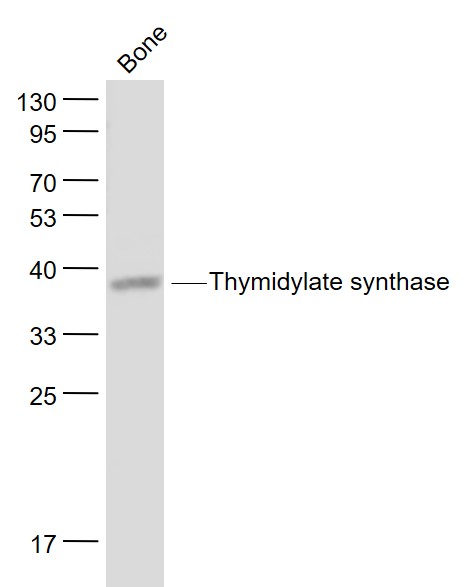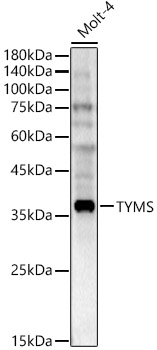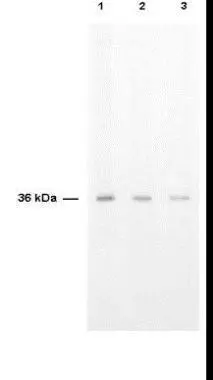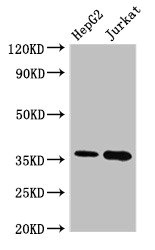![IHC-P analysis of human testicular carcinoma tissue using GTX35113 Thymidylate synthase antibody [SPM453]. IHC-P analysis of human testicular carcinoma tissue using GTX35113 Thymidylate synthase antibody [SPM453].](https://www.genetex.com/upload/website/prouct_img/normal/GTX35113/GTX35113_IHC-P_1_w_23060801_145.webp)
IHC-P analysis of human testicular carcinoma tissue using GTX35113 Thymidylate synthase antibody [SPM453].
Thymidylate synthase antibody [SPM453]
GTX35113
ApplicationsFlow Cytometry, ImmunoFluorescence, ImmunoCytoChemistry, ImmunoHistoChemistry, ImmunoHistoChemistry Paraffin
Product group Antibodies
ReactivityHuman
TargetTYMS
Overview
- SupplierGeneTex
- Product NameThymidylate synthase antibody [SPM453]
- Delivery Days Customer9
- Application Supplier NoteICC/IF: 1-2microg/ml. IHC-P: 1-2microg/ml for 30 minutes at RT. FACS: 1-2microg/106 cells. *Optimal dilutions/concentrations should be determined by the researcher.Not tested in other applications.
- ApplicationsFlow Cytometry, ImmunoFluorescence, ImmunoCytoChemistry, ImmunoHistoChemistry, ImmunoHistoChemistry Paraffin
- CertificationResearch Use Only
- ClonalityMonoclonal
- Clone IDSPM453
- Concentration0.2 mg/ml
- ConjugateUnconjugated
- Gene ID7298
- Target nameTYMS
- Target descriptionthymidylate synthetase
- Target synonymsDKCD, HST422, TMS, TS, thymidylate synthase, TSase
- HostMouse
- IsotypeIgG1
- Protein IDP04818
- Protein NameThymidylate synthase
- Scientific DescriptionThymidylate synthase catalyzes the methylation of deoxyuridylate to deoxythymidylate using, 10-methylenetetrahydrofolate (methylene-THF) as a cofactor. This function maintains the dTMP (thymidine-5-prime monophosphate) pool critical for DNA replication and repair. The enzyme has been of interest as a target for cancer chemotherapeutic agents. It is considered to be the primary site of action for 5-fluorouracil, 5-fluoro-2-prime-deoxyuridine, and some folate analogs. Expression of this gene and that of a naturally occurring antisense transcript, mitochondrial enolase superfamily member 1 (GeneID:55556), vary inversely when cell-growth progresses from late-log to plateau phase. Polymorphisms in this gene may be associated with etiology of neoplasia, including breast cancer, and response to chemotherapy. [provided by RefSeq, Aug 2017]
- ReactivityHuman
- Storage Instruction2°C to 8°C
- UNSPSC12352203





![IHC-P analysis of human spleen tissue using GTX639929 Thymidylate synthase antibody [HMV305] HistoMAX?. Moderate to strong thymidylate synthase staining of a fraction of lymphocytic cells.](https://www.genetex.com/upload/website/prouct_img/normal/GTX639929/GTX639929_20240403_IHC-P_1_24040301_669.webp)

![IHC-P analysis of human testicular carcinoma tissue using GTX35114 Thymidylate synthase antibody [TMS715].](https://www.genetex.com/upload/website/prouct_img/normal/GTX35114/GTX35114_20200115_IHC-P_1218_w_23060801_392.webp)
